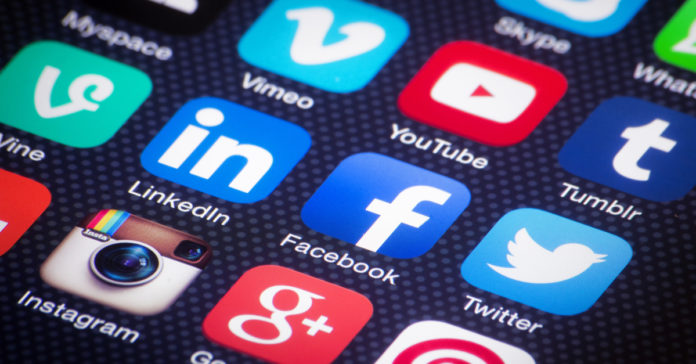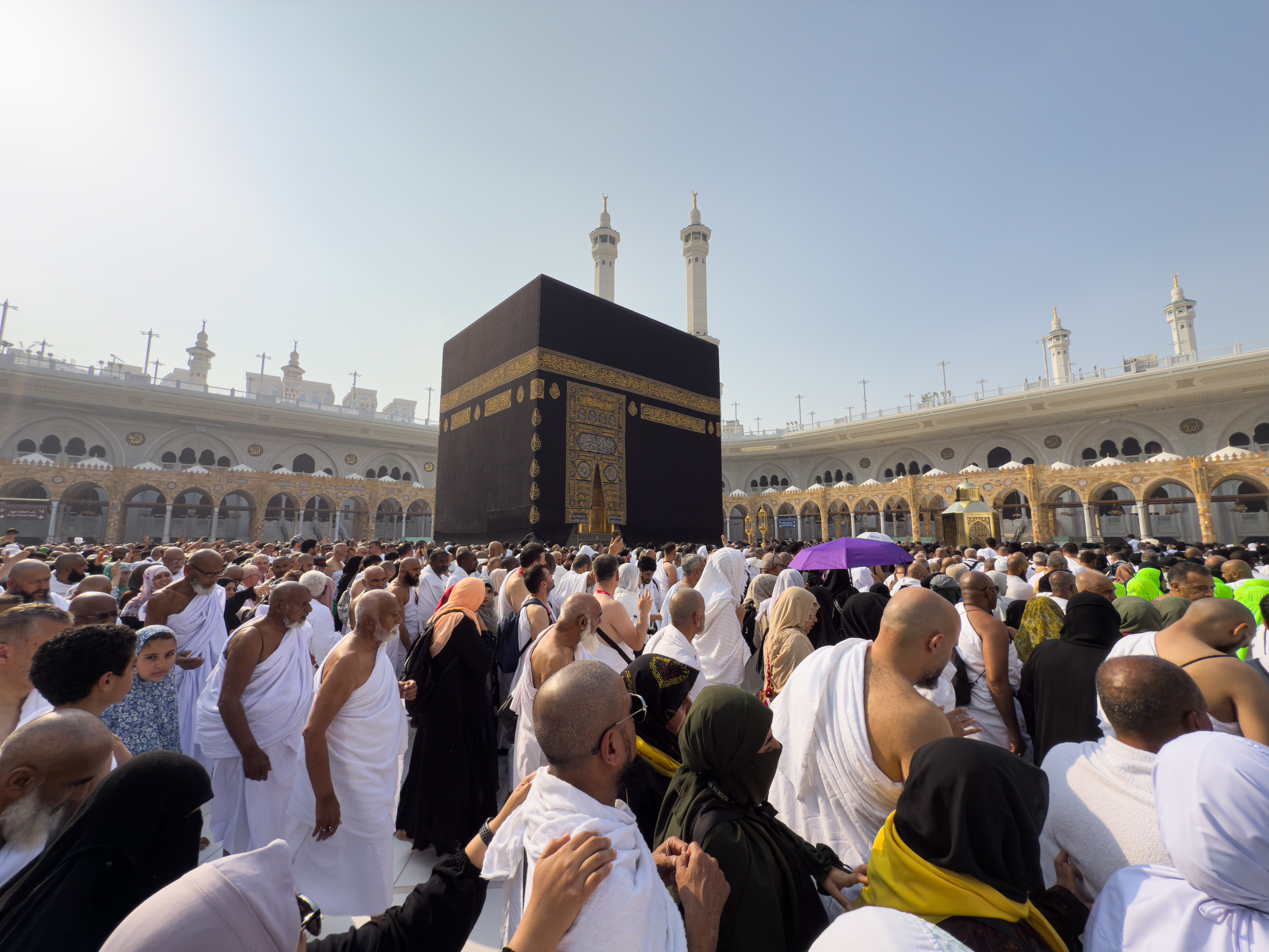
Muslims are facing unprecedented censorship and pressure from social media companies and that’s why we must urgently create our own platforms, argues 5Pillars editor Roshan Muhammed Salih.
Social media used to be great. Those of us who didn’t have a voice on the mainstream media could, at last, express ourselves freely on platforms which attracted millions of people.
This was a godsend for small media companies like 5Pillars. We really believed that through sheer hard work and editorial know-how we could build a community platform that would genuinely represent the priorities and concerns of British Muslims. A platform that would say all the things that the mainstream wouldn’t.
And how would we drive traffic to that platform? Mainly by posting our content on social media sites such as Facebook, Twitter and YouTube.
And indeed for several years it was great. With the mainstream media either demonising Muslims, ignoring them or trying to choose who should speak for us or not, a gaping hole was left for people like us who were determined to tell the community’s stories unfiltered.
So there’s no doubt that platforms like Facebook and, to a lesser extent, Twitter and YouTube have played a huge role in the growth of our website, as they have for countless others. And in doing so they have helped minority communities find a voice for themselves which is so lacking in the mainstream.
What’s more, it isn’t just about getting the stories out there. Social media sites have also allowed platforms like ours to fundraise to support the journalism that we are doing. Advertisers will naturally gravitate towards online sites with huge traffic flows so social media has offered us the ability to directly appeal for funds to people who follow us.
Subscribe to our newsletter and stay updated on the latest news and updates from around the Muslim world!
So with the chance to build a business and reach millions of people, what’s not to like?
Fake News
Sadly, a few years ago things began to change and this change seems to have coincided with the mainstream media and politicians heaping pressure on the likes of Facebook to censor alternative opinions. This was done, of course, not under the banner of “censorship” but under the premise of cracking down on “fake news.”
The Department for Education is now even setting up its own “rapid rebuttal unit” to tackle so-called fake news in the media. It’s said to be one of the first department-specific teams in government to challenge “misinformation at the source” and rebuff “misleading content” before reaching the mainstream.
But I’m one of the few journalists who has always been sceptical about the fake news furore because I believe that the main disseminator of fake news has always been the mainstream media itself. After all, these are the people who manufactured consent for the Iraq war, and for the Tory Party victory in the General Election following a prolonged demonisation campaign against Jeremy Corbyn over antisemitism. And I could go on and on.
Ultimately we must remember that fake news in the mainstream media is far more significant than fake news in the alternative media because it has the ability to reach far more people and create far more impact. So in my view the fake news crisis was not actually about stopping fake news; rather, it was about reasserting the dominance of the mainstream media.
The fact is that the mainstream media is heavily distrusted by the British public and is shedding audiences. A recent YouGov poll for Sky News found that two-thirds of the public don’t trust TV journalists, and almost three-quarters don’t trust newspaper journalists. On top of this, the viewing and readership figures for the traditional media is plummeting in a multi-channel and online world.
But rather than take a good, long hard look in the mirror and admit that this is because of false reporting, the targeting of minorities, and the parroting of the Establishment line, journalists have instead decided to bury their heads in the sand and blame “conspiracy theorists” in the alternative media instead.
Anyhow, the constant barrage of propaganda about the dangers of fake news seems to have had an effect on the social media giants who’ve responded by censoring alternative views.
How censorship works: Facebook
So how exactly is the alternative media being censored by Facebook? Well, let me speak about my own experiences at 5Pillars.
Around a year ago we started to get Facebook violations even though we were posting the same kind of content that we had always posted. Certain videos and articles attracted particular attention from the censors, such as anything to do with LGBT issues or Israel/Palestine.
Don’t get me wrong, in principle I have no problem whatsoever with Facebook’s Community Guidelines. I too believe that graphic content and hate speech should not be on a social media platform that is available to millions of people, including children. In fact, 5Pillars is completely committed to fair and accurate journalism and this is the reason why we have signed up to the independent regulator IMPRESS which has the power to investigate complaints against us and sanction us.
But the thing is we weren’t getting sanctioned for hate speech or graphic content. We were literally getting sanctioned for writing impartial news stories on Israel’s treatment of the Palestinians or the controversy surrounding the issue of homosexuality in the Muslim world.
And believe you me, Facebook was judge, jury and executioner.
For example, the Facebook complaints experience is a total nightmare. This is how it works: out of the blue you get a notification that you have committed a violation and often your ability to monetise content or post stories is restricted because of the violation. The reasons given will be very brief such as: “you have violated our guidelines on hate speech or graphic content” with the offending post attached.
You will then be given an opportunity to appeal but this is limited to pressing a button and that’s it. There is no chance to argue your case and explain why Facebook has made an error; you are simply at the mercy of the reviewer. So in effect you have no ability to mount a defence.
5Pillars has been sanctioned many times in this way by Facebook and it is my sincere belief that all of the posts we were punished for should not have been flagged up because they could have been justified by the news context. What’s more, if you get sanctioned your ability to fundraise on Facebook is restricted or prohibited, as is your ability to advertise your work.
So in effect Facebook has the power to destroy businesses simply by switching off the lights; you and your livelihood are at their complete mercy.
Moreover, Palestinian voices are particularly vulnerable on Facebook. Last October Facebook deleted the page of the popular Palestinian news website, the Palestinian Information Center. PIC had nearly five million followers on Facebook, a testament to its popularity and credibility among a large cross-section of Palestinians and their supporters internationally. But for Israel’s trolls on social media, PIC was simply too effective to be allowed to spread its message. And as usual, Facebook obliged.
This oft-repeated scenario – where pro-Israeli social media trolls zoom in on a Palestinian media platform while working closely with Facebook management to censor content, bar individuals, or delete whole pages – is now the norm. Palestinian views on Facebook are simply unwanted, and the margin of what is allowed is rapidly shrinking.
When in September 2016, the Israeli government announced its willingness to work with Facebook to “tackle incitement,” the social media giant was ready to reach an understanding, even if that meant violating the very basic freedom of expression it has repeatedly vowed to respect. During that period, the Israeli government and Facebook agreed to “determine how to tackle incitement on the social media network,” according to the Associated Press citing top Israeli officials.
And the icing on the cake? Just last month Facebook appointed Emi Palmor, the former Israeli Justice Ministry director-general, to its Oversight Board which will be tasked with content moderation on Facebook and Instagram. Palmor, who is a lecturer in the Israeli Defence Forces, is one of 20 members selected from around the world to be appointed to the independent board. The Board will review content referred to it both by users and Facebook and has the power to overturn Facebook’s own decisions.
Unaccountable Twitter
Now let me briefly talk about a few other major social media sites that we use – Twitter and YouTube.
While Twitter has only ever censored me once (for expressing my happiness about the war propagandist Alistair Campbell being depressed) and remains, in my view, a freer platform than Facebook to express opinions, it has banned us from advertising our posts. And in typical unaccountable social media giant style, it didn’t give us a reason for deeming us unworthy but just said we did not meet their criteria.
So given that we were no longer allowed to advertise on Twitter we reasonably assumed that we should stop the small campaign ads that we were running. But of course that would be far too easy and Twitter effectively refused to stop taking our money despite the fact that we were getting no service in return.
I don’t want to bore you with the details of my financial dispute with Twitter but suffice it to say Twitter is just as unaccountable as Facebook.
When you converse with them over their messaging service you definitely get the feeling that you are talking to a robot rather than a human being; and all you get is stock answers which don’t really address your question. So I literally had to ring my bank to instruct them to stop paying Twitter.
But I guess the more interesting question is why did Twitter stop our advertising? I have no idea frankly but I’m sure it had nothing whatsoever to do with the fact that its executive with editorial responsibility for the Middle East is also a part-time officer in the British Army’s psychological warfare unit.
As Middle East Eye revealed last year, Gordon MacMillan has for several years also served with the 77th Brigade, a unit formed in 2015 in order to develop “non-lethal” ways of waging war. On its website the British army unit says: “We are a combined Regular and Army Reserve unit. Our aim is to challenge the difficulties of modern warfare using non-lethal engagement and legitimate non-military levers as a means to adapt behaviours of the opposing forces and adversaries.”
All very reassuring.
And guess what? Just like Facebook, Twitter doesn’t appreciate Palestinian voices too much. In 2019 it suspended three accounts belonging to the leading Palestinian news website, Quds News Network without explanation. You can see a pattern emerging, can’t you?
YouTube censorship
5Pillars hasn’t focussed on YouTube a great deal so we are yet to experience their wrath, but another company I worked for, Press TV, most definitely has.
Press TV is Iran’s 24 hour English-language news network and has been censored by YouTube several times. The pattern is a familiar one – Press TV will build up an audience of several hundreds of thousand subscribers by posting lots of content and then YouTube will abruptly delete its page. This process has happened on at least five occasions since Press TV started broadcasting over a decade ago and quite frankly it is a galling experience for journalists to see all their hard work disappear with the flick of a switch.
I myself used to have many videos on YouTube from all over the world and some of them had millions of views. Those videos were my online CV and I regularly used to brag about them to anybody who would listen. But they have now disappeared into thin air, as have my bragging rights.
Again, as with Facebook and Twitter, there is no proper appeal process at YouTube and all you get is a notice that you have infringed their Community Standards, which is almost certainly untrue.
Much more likely is that YouTube, as an American company, is complying with U.S. sanctions on Iran which targets all Iranian entities regardless of issues such as freedom of the media. I just wish YouTube was man enough to admit it.
The upshot of all this is that I now find myself censoring what I say on my social media platforms so that I don’t get kicked off them. So when I see a story about LGBT issues or Palestine I think very carefully about posting it, whereas before I wouldn’t think twice. And I’m not talking about stories which incite hatred or show graphic violence; I’m talking about legitimate fact-checked news stories.
Ultimately, that’s the only way to have a prominent presence on social media and survive and thrive – by self-censoring and making sure you never cross the lines that Western liberals have drawn in the sand.
Islamic alternatives?
The truth is that social media giants such as Facebook, Twitter and YouTube have way too much power and our dependence on these platforms makes us vulnerable to being censored.
The American social media giants are no longer the saviours of alternative journalism; in fact they have destroyed the journalistic model for so many news organisations by hoovering up online advertising and pulling the editorial plug when they see fit.
So we have a few choices in front of us.
Firstly, we could simply persevere with the social media behemoths which is what we are doing at the moment. This is a very tempting course of action because we already have major platforms on them which we have invested a lot of time, money and effort into. But it also means that we will have to self-censor in the hope of staving off that inevitable day when we are kicked off permanently. And let’s face it, what’s the point of doing what we do if we are prepared to self-censor?
Secondly, we could seek to migrate to other platforms which are not based in the West. Both China and Russia have massive social media platforms although most cater for Chinese or Russian speakers so the English language audience is just not present there yet. Moreover, what’s not to say that China and Russia won’t censor us one day too? In fact, I’m sure you would get censored on a Chinese platform if you started criticising China’s repression of the Uyghurs.
Thirdly, the Muslim world could give some serious thought to creating its own social media platforms. I understand that this is a gargantuan task given that the American social media giants have such a head start; not to mention the divisions within the Muslim world itself. But I do believe there is a compelling reason to create such platforms (the lack of freedom of speech and Islamic values on the U.S. platforms) whereas in the past none existed.
I, for one, am willing to migrate immediately to a Muslim-led social media platform if a credible one could be created. And I believe millions of others would be ready to do the same. It would be a task which could take years, even decades, to accomplish and see flourish. But it is all about controlling our own destiny and taking it out of the hands of our potential enemies. And if it were to happen, believe you me I wouldn’t miss the likes of Facebook one little bit.
This article originally appeared in the Islamic Human Rights Commission’s The Long View magazine. You can read it here.





















